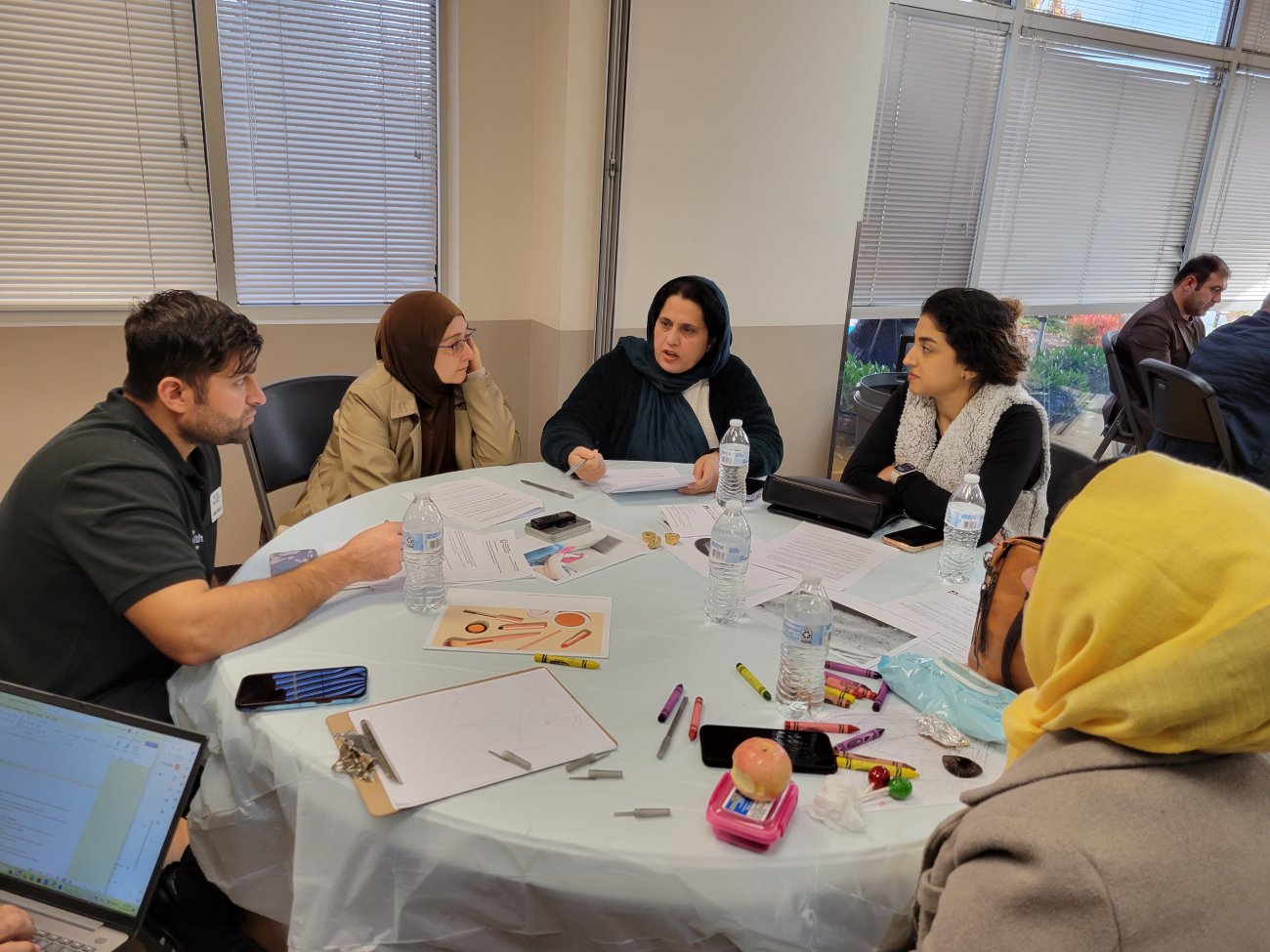Toxic chemicals may be hiding in makeup – a discovery made thanks to community engagement in local research
Through community collaboration, research out of the Hazardous Waste Management Program finds elevated lead levels in traditional eyeliners.

New research out of the Hazardous Waste Management Program (Haz Waste Program) in King County finds dangerously high levels of lead in traditional eyeliners. The study, published in PLOS Global Public Health on June 25, found lead levels in traditional eyeliners hundreds of thousands of times higher than Washington restriction levels under the Toxics Free Cosmetics Act – even in products labeled “lead free.”
Read on to learn more about the research and key tips for avoiding lead exposure in your beauty products.
The issue
Kohl, kajal, and surma are traditional eyeliners worn by adults and children in local immigrant and refugee communities, including the local Afghan community. These eyeliners may contain toxic chemicals such as lead, which can damage the brain, heart, and other parts of the body.
Lead poisoning is particularly a concern for children. Traditional eyeliners are applied on children from infancy for a variety of religious, cultural, and medicinal reasons. When a child rubs their eyes and puts their hand in their mouth, they can ingest lead.
Local scientists in the Haz Waste Program, in partnership with the University of Washington’s Department of Environmental and Occupational Health Sciences, found lead concentrations in traditional eyeliners well above Washington’s restriction levels. Some traditional eyeliners had lead levels over 800,000 times higher than these standards. Even products labeled “lead-free” had concentrations up to 600,000 times higher than restriction guidelines.
Despite US regulations limiting lead content in eyeliners, as well as an FDA Import Alert on traditional products, researchers were able to readily purchase lead-containing eyeliners online when attempting to do so from locations within King County.
You can read the study here.
What makes this research unique
The Haz Waste Program’s research aims to support King County residents in their daily lives, and we couldn’t have done this work without community participation. Building off previous work evaluating lead in imported cookpots, the Haz Waste Program partnered with the Afghan Health Initiative to reach out to community members to learn more about the use of traditional eyeliners and opportunities to promote safer alternatives.
The community came together to let us know which products to test and where to buy them. They brought in product samples and made lists of additional products and the retailers where they made purchases. They also advised us on which safer alternatives would work for them. What makes this study so special is more than the findings, it’s the level of immigrant and refugee community participation in the research.
“The combination of community participatory research and statistical analysis related to lead in eyeliner is unique. To our knowledge, this is a novel approach. In a time of divide between government and immigrant communities, this is one way local Afghan communities and King County are leaning in. It’s a problem-solving success story that wouldn’t be possible without community involvement and community wisdom,” says Aesha Mokashi, a Health & Environmental Investigator with the Haz Waste Program and lead author on the study.
Prior to this project, most community participants in the research (90%) were unaware that traditional eyeliners might contain lead, but most were open to safer alternatives recommended by the Haz Waste Program after learning about the issue. King County is making a point to follow up with community members to close the loop and let them know how their participation in the research had an impact. With new insights on safer alternatives, King County can also facilitate community-led interventions to promote these alternative products. The Haz Waste Program hopes to reach local Afghan audiences who may be exposed to get them tested for lead poisoning, in collaboration with the Afghan Health Initiative.
What you can do at home
Want to find safer beauty products right now? These sites can help: EWG Skin Deep, Black Beauty Project, or COSMOS Standard (for natural/organic products).
If you are concerned about lead poisoning, call your healthcare provider for a blood test. You can contact Aesha Mokashi at aeshmokashi@kingcounty.gov to learn more about this research.
Want to learn more about our community partner? The Afghan Health Initiative offers programs and services rooted in culture, care, and connection, designed to meet the needs of immigrant and refugee families. Visit the Afghan Health Initiative’s website here: Afghan Health Initiative.
For information about the Haz Waste Program, visit our news and events page and our online press kit.
 Translate
Translate